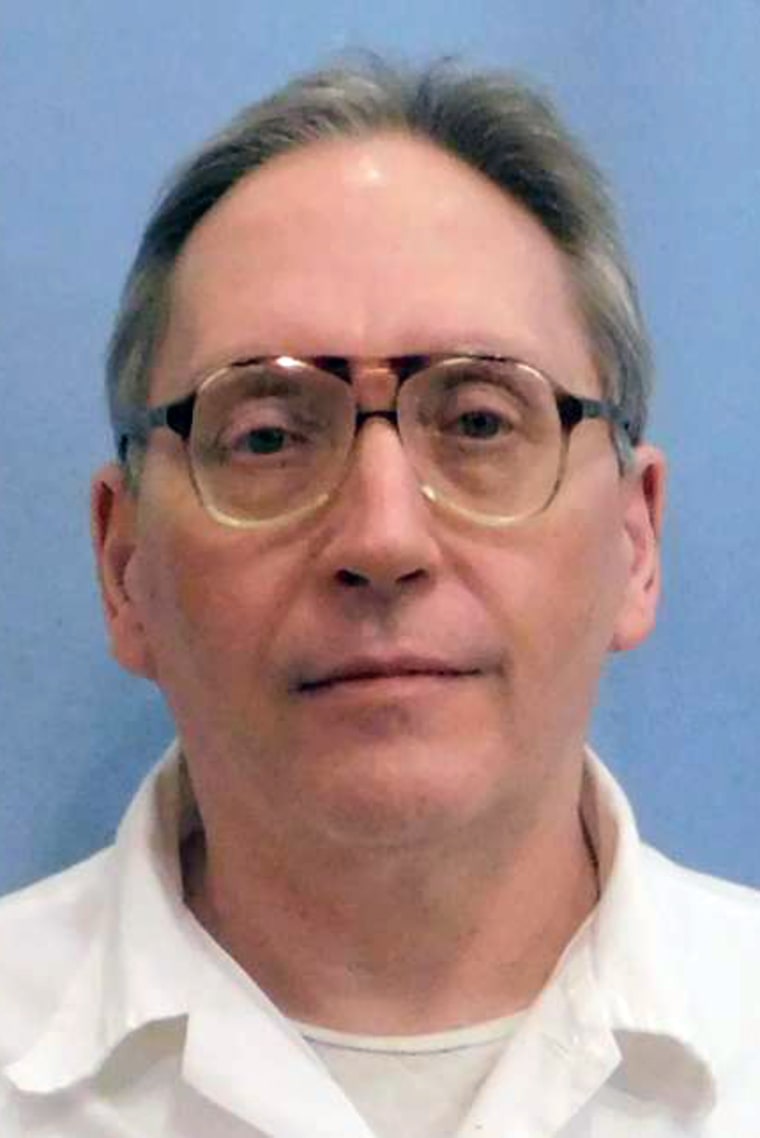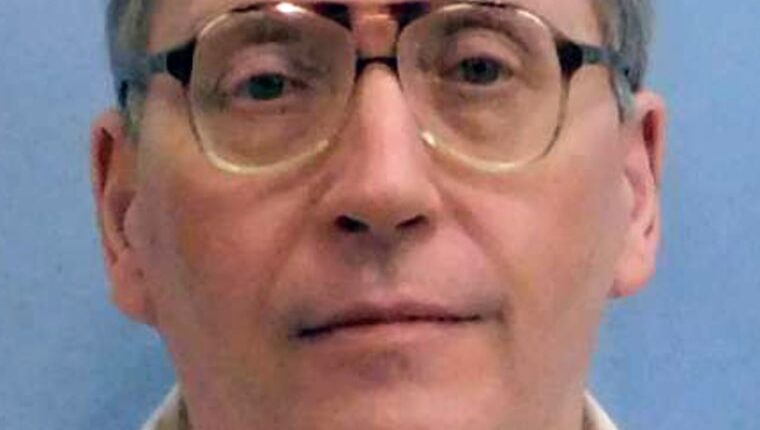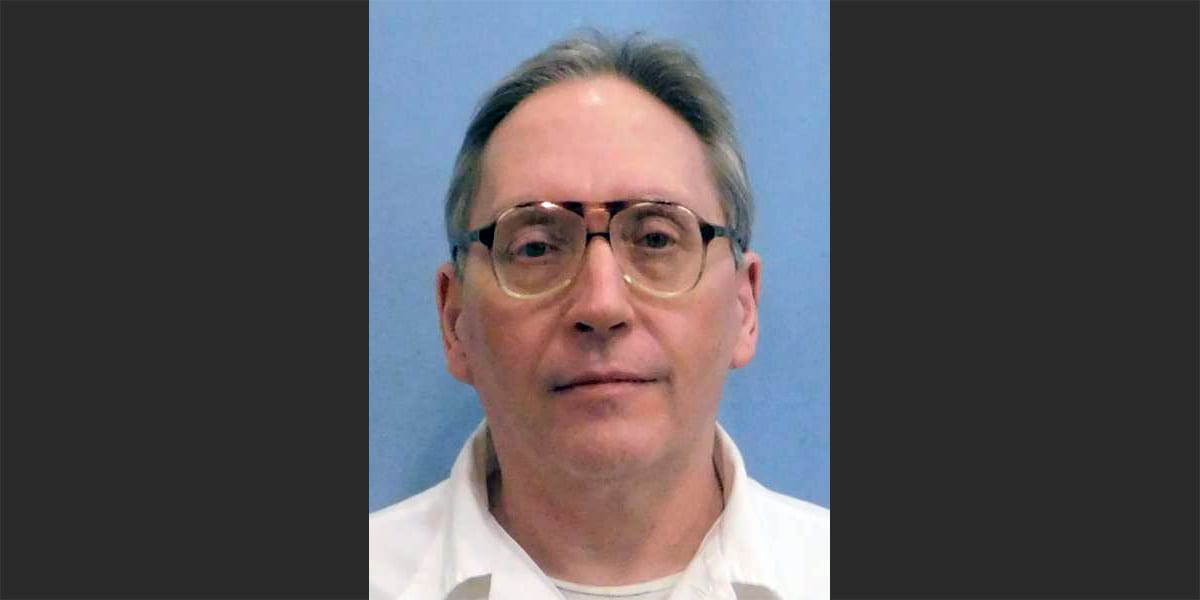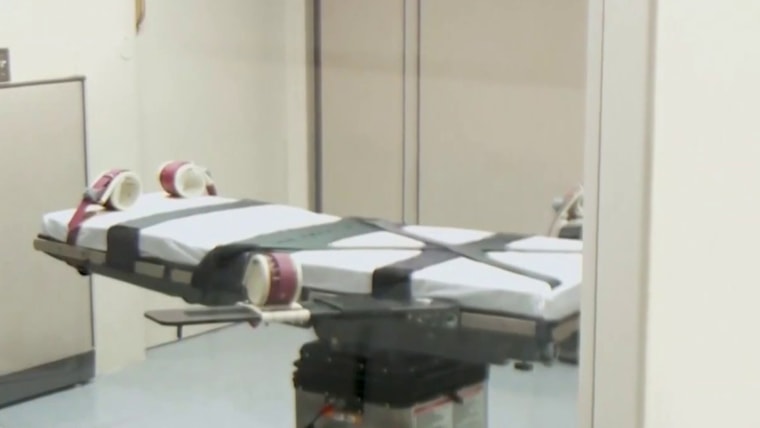Alabama can proceed with its plan to put to death convicted murderer James Barber on Thursday evening — its first execution since a pause on capital punishment prompted by a series of failed lethal injection attempts was lifted in February.
In a 2-1 ruling, a federal appeals court panel Wednesday rejected Barber’s request to block his execution over fears that he could be subject to “substantial harm.”

The majority wrote that the lower court did not err in its finding that the Alabama Department of Corrections has amended its execution procedures, therefore rendering his “claim that the same pattern would continue to occur purely speculative.”
In a dissenting opinion, however, U.S. Circuit Judge Jill Pryor blasted the state’s execution review process for being conducted “entirely outside the scope of any court’s or the public’s scrutiny, and without saying what went wrong or what it fixed as a result.”
The state “swears it is ready to try again, with Mr. Barber as its guinea pig,” she wrote.
Barber, 64, is set to die by lethal injection at 6 p.m. local time at the William C. Holman Correctional Facility in Atmore, barring any last-minute reprieve. He’s been on death row for almost 20 years for the 2001 robbery and killing of Dorothy Epps, a 75-year-old homeowner for whom he worked as a handyman.
He told NBC News in a phone interview Saturday that he was skeptical the state can pull off his execution without incident.
“I have a fair amount of trepidation about the process that they obviously haven’t perfected — to be at their hands and be the first one after they didn’t do a true review of the protocol and made no real changes,” he said.
Barber has said he found salvation through Christianity during his time in prison and formed a friendship with Sarah Gregory, a granddaughter of the victim, who has said she forgives him and doesn’t want to see him executed.
“I don’t want people to think, well, I want to die,” he said. “Nobody wants to die. I think there’s a lot that I can accomplish and people I can help. Change hearts. I’d like to be around, I would. But to make it clear, I’m not hanging on to this life.”
Gov. Kay Ivey’s office did not immediately respond to a request for comment.
State Attorney General Steve Marshall agreed with the 11th U.S. Circuit Court of Appeals’ ruling.
“Dorothy Epps was brutally murdered 22 years ago,” he said in a statement Thursday. “The Eleventh Circuit’s decision places us one step closer to justice for this heinous crime.”
Barber’s planned execution will be the first to proceed under a new procedure approved by the state Supreme Court that allows the governor to set a time frame for when a death row inmate can be put to death, rather than within a single day constrained by a midnight deadline.
Ivey has previously said the “brief pause in executions was necessary to make sure that we can successfully deliver that justice and that closure” to victims’ families.
The change came after Alabama grappled with a string of problematic executions last year.
In July, convicted murderer Joe Nathan James Jr. was put to death by lethal injection following a three-hour delay related to difficulties establishing an IV line in a vein.
Two months later, the state halted the execution of Alan Miller, on death row for a 1999 workplace shooting, because of problems accessing his veins.
Then, in November, the state again had to call off an execution when it could not find a suitable vein for Kenneth Eugene Smith — sentenced to death for a 1988 murder-for-hire plot — by the midnight deadline.
Following a three-month review, Ivey announced that executions would resume after state Corrections Commissioner John Hamm said internal changes were being made, including ordering new equipment and ensuring appropriate staffing. But details about the review’s findings were not released, and critics have said an outside agency should have been tasked with evaluating the state’s capital punishment protocols.
The state attorney general’s office said in court filings that it is showing “good faith” by using a new IV team whose members are appropriately licensed. The state has also said that no person who was responsible for setting IV lines in past executions would take part in Barber’s execution and that additional straps for securing an inmate on the execution gurney would be made available.
In 2018, Alabama approved an alternate execution method to lethal injection — nitrogen hypoxia, which is death by breathing in nitrogen gas — but corrections officials have said the protocol for carrying it out is not yet complete.
Source: | This article originally belongs to Nbcnews.com











